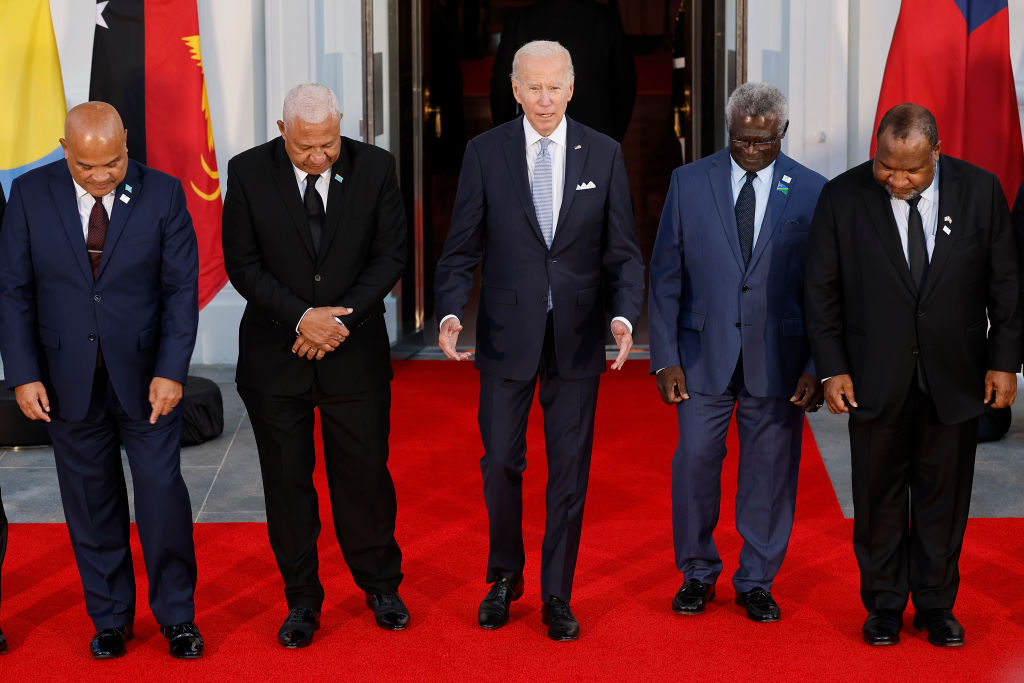The United States and Papua New Guinea have signed a new bilateral defense cooperation agreement that gives American troops access to the island nation's ports and airports.
First, the U.S. gained access to new military bases in the Philippines and now Washington has made a deal with Papua New Guinea. It was the site of fierce battles during World War II, and with a population of nearly 10 million people, is the most populous Pacific Island nation. The Indo-Pacific is central to the Joe Biden administration and its strategic plans.
The State Department said the new agreement provides a framework to help improve security cooperation, enhance the capacity of Papua New Guinea’s defense force and increase regional stability. The full agreement will be made public likely in a couple of months. U.S. Secretary of State Antony Blinken arrived in Papua New Guinea in place of US President Joe Biden, who cut short an Asia-Pacific trip to return to Washington for negotiations on the US debt limit. Biden would have become the first sitting U.S. president to visit a Pacific island, but canceled the trip to focus on the debt limit talks in Washington.
Papua New Guinean Prime Minister James Marape said the pact is mutually beneficial and secures national interests in becoming a robust economy in this part of the world. But the agreement sparked student protests in the second-largest city, Lae. Many in the Pacific are concerned about the increasing militarization of the region. Rumors had it that the deal would give U.S. staff legal immunity to operate nationwide while exempted from any legal liability. The deal was reportedly said to raise the ire of Chinese officials. James Marape denied that U.S. staff would have legal immunity and said no amendments would be made to the constitution or laws of the country. He said his country faced significant security challenges and thus the deal was necessary. The former prime minister Peter O'Neill accused Marape of placing the country "at the epicenter of a military storm between China and the USA by agreeing to enter into defense arrangements". In response to news of Blinken's impending visit, China warned against the introduction of "geopolitical games" into the region.
- Read more: The U.S. visit of President Marcos Jr. New resulting in the new U.S., Philippines Defense Guidelines
The United States has signed a defense and maritime surveillance agreement with Papua New Guinea, allowing the U.S. Coast Guard to combat illegal fishing and drug trafficking in the Pacific Ocean. The U.S. and Papua New Guinean militaries already have a cooperative security assistance relationship focused primarily on joint humanitarian exercises, the U.S. State Department said in a statement. The U.S. visit coincided with a trip by Indian Prime Minister Narendra Modi, who was hosting a meeting with Pacific Island leaders to discuss ways to better cooperate. Australia will also soon sign its security treaty.
Author:
Dawid Krupa is a fourth-year law student at the Faculty of Law and Administration at Warsaw University. He has worked with various cultural institutions such as the POLIN Museum of the History of Polish Jews, the Warsaw Uprising Museum and the Forum for Dialogue Foundation. His interests include national politics, international relations, religious studies and gardening.
This article was written as part of the statutory activities of the Polish think tank Warsaw Institute. If you appreciate the content prepared by our partner, we appeal to you for financial support for this non-profit organisation.
More information:
www.warsawinstitute.org/support/



